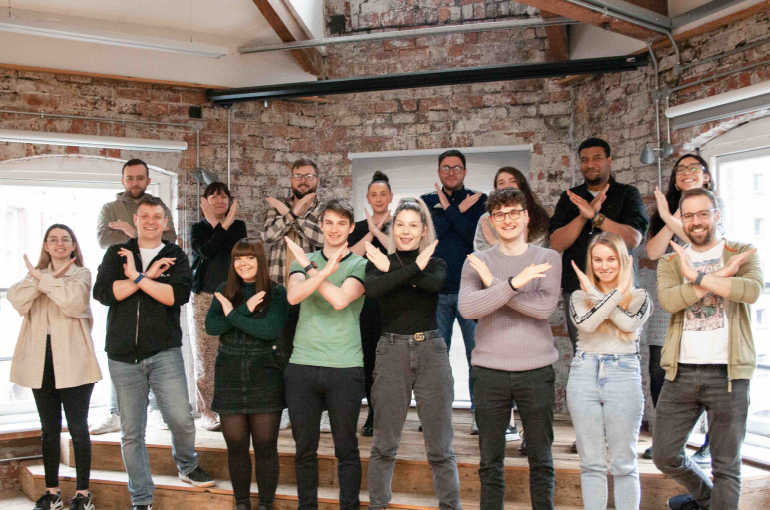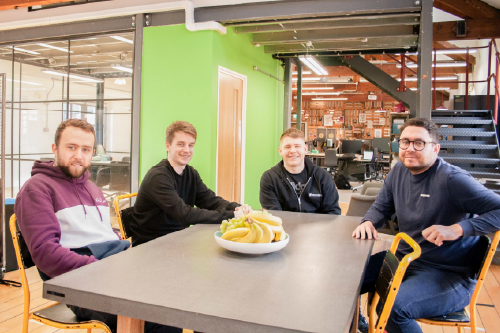We all know how important ensuring health and safety at work is, especially as we do lots of site visits to residents’ homes and in plant rooms across the UK, but we also have many remote workers where we still have responsibilities for people’s safety!
To touch on this important subject and to inform our clients on how Sycous are working to prevent health and safety issues, we sat down with our Health, Safety, Environment and Quality (HSEQ) Administrator Amey Beddows on this World Day for Safety and Health at Work!
Occupational Safety and Health (OSH) is a field concerned with the safety, health, and welfare of people at occupation. It is crucial to ensure OSH regulations are in place at workplaces as it aims to prevent occupational accidents as well as ensuring all employees and everyone else that comes in contact are safe and healthy.
In 2003, International Labour Organisation (ILO), began to observe World Day in order to stress the prevention of accidents and diseases at work. Every year since then, a theme related to Safety and Health at Work is selected, and ILO encourages everyone to join them to help raise awareness. This year, the focus is on creating and investing in resilient OSH systems and mitigating and preventing the Spread of COVID-19 at the workplace.
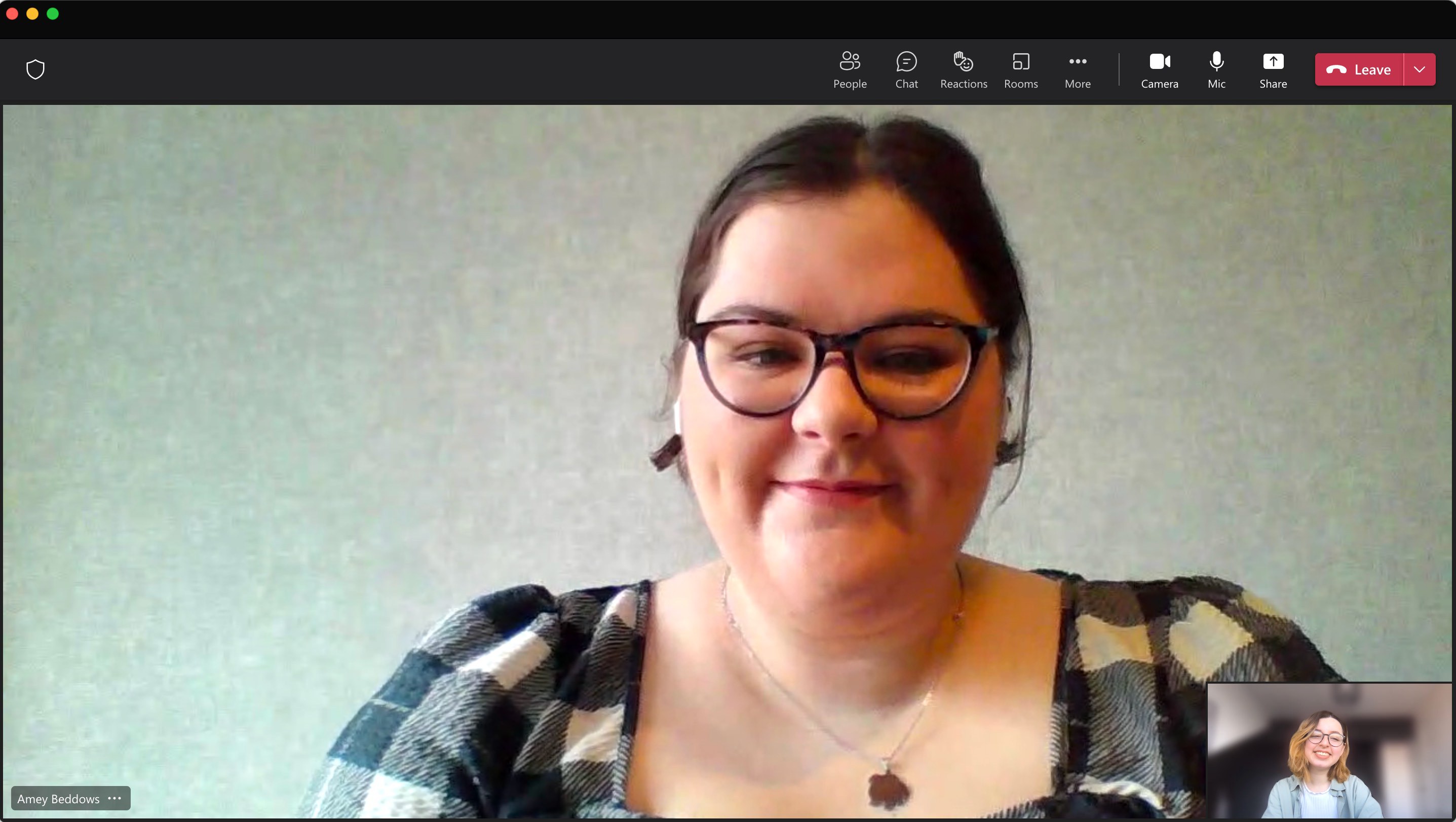
How did you start working in Health & Safety?
My journey towards working in Health & Safety began when I first joined Sycous 5 years ago. I started as a Project Coordinator managing projects by liaising with both clients and engineers. Therefore, as part of the job, I needed to be aware of the health and safety considerations (even if just at a basic level) of sites and making sure our field engineering team stayed safe. Last year I made the move to solely work on the HSEQ team, the rest they say is history!
Why does working in Health & Safety interest you as a career path?
I love the legislations, laws and reading and learning more about them. Many people might find constant research boring, but personally, I find everything I read fascinating. There are unlimited number of articles, methods and laws that getting published every day. So, for me, the ability to always learn more by researching and doing extra training makes Health and Safety the perfect fit.
What does a typical day look like for you?
No two days are the same! A lot of my role is reviewing risk assessments, but I also arrange any training that the company needs and oversee any health and safety accreditations. I spend a lot of time working proactively to reduce the risks all our team face but am always ready to react on short notice!
What are you currently working on?
At the moment, I am working on the creation of Standard Operating Procedures (SOP) for the use of our new compliance software, which will help us manage our day-to-day health and safety needs and also as part of our ISO accreditations. The software will allow engineers and all our team to use an app to report a near-miss, accident, or incident quickly and easily. We feel that the easier the method of reporting is really important to improve the information we receive – both the quality and quantity!
Besides the software, I am also working on our safe systems of work, ensuring that all our team activities are completed in the safest possible manner.
How would you describe the learning opportunities and benefits that come with your line of work?
Since starting this role I have been given lots of opportunities to gain more knowledge of the health and safety in our industry. I have gained my IOSH Managing Safely and IOSH Managing Occupational safety and wellbeing. I love the flexibility of my role and researching different aspects of health and safety guidance and finding the best way that we can implement that as a company.
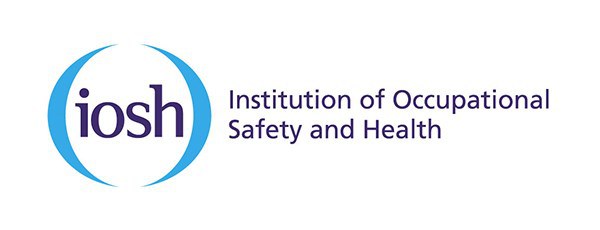
How would you describe
the importance of Occupational Safety & Health, especially in the heat network sector?
Health and Safety in the workplace is extremely important. It may not seem the most exciting subject to most people... but we have developers whose role can be heavily computer based, potentially affecting both their physical and mental health. On the other wide, we have engineers working with electrical equipment and in potentially dangerous locations.
When we look at the work we do on heat networks, the most obvious risk being hot water! Our team are often changing meters or maintaining HIU’s, relying on local isolation but if this fails, we always need to know and be able to access the next point of isolation to avoid risk of injury... the hot water can be up to 90oC!
However, there are many other risks, from working in plant rooms with M&E equipment to building sites.
What are the precautions Sycous are taking while we adjust back to normal life after the COVID-19 pandemic?
Sycous are still very much focused on staying safe when it comes to Covid-19. Our engineers visiting residents’ properties are still required to wear face coverings and appropriate PPE.
We feel there has been a massive change in attitude after Covid-19 and it has created a whole new ‘normal’. This means that we have a greater focus on mental health but also encouraging people to take the time they need to recover when ill... a hero isn’t the person who works through when they don’t feel well!
Besides prevention of occupational diseases, our line of work has an opening for occupational accidents as well. Can you tell us more about these and the precautions Sycous are taking to prevent these accidents from happening?
Sycous have a really great accident record and have never had any Reporting of Injuries, Diseases and Dangerous Occurrences Regulations (RIDDOR) reportable incidents.
And I’m hoping with the roll out of the MY Incidents app, our employees will find it easier and quicker to report things they see that aren’t right, so we can understand where a potential for an accident exists and quickly respond, making it safe for our team and others.
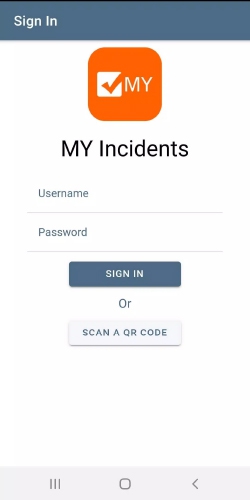
When we say health in a Safety and Health setting, it’s generally assumed that it’s physical. Can you tell us more about the consideration of mental health regarding OSH?
A lot of our team are classed as lone workers, including field engineers, commercial team and many remote or hybrid roles. Being on your own, 5 days a week gets lonely, and it is important that we check in on our employees regularly to make sure they’re alright and still in touch with the rest of the Sycous team.
We have taken some great lessons from our development team, who work in an agile way that facilitates regular communication and an opportunity to ask for support. This has been rolled out to other remote and hybrid teams, such as our Product and Data Support teams to reduce this risk.
Our field team and other employees may also need to drive long hours and can face stress related to traffic. We all know the frustrations and we try to ensure that we are there for them, as well as monitoring their driving behaviour and hours, intervening as needed. We try to support our team in the best way we can and create an environment where people feel supported and comfortable.
How do you ensure our employees on site are complying with the Health & Safety rules and regulations?
Complying with the Health and Safety is in everyone's best interest, keeping them and others safe. We feel this is part of the culture in Sycous, which is important, but we still follow 2 main steps to ensure our employees’ safety:
1. Our team carry out training to make sure they understand the reason why the rules are in place.
2. We ensure monitoring is in place, including audits by an external provider, to ensure what we have in place is appropriate and being followed appropriately.
If you could say one sentence to raise awareness to the importance of creating and investing in resilient Occupational Safety & Health systems in the heat network sector, what would it be?
It is hard to squeeze everything in one sentence!
But to summarise everything I said, ‘Health and Safety might not be glamorous, but it is about common-sense, we assess risks throughout our lives and in work, we just do this formally to keep ourselves and others safe and happy!’





